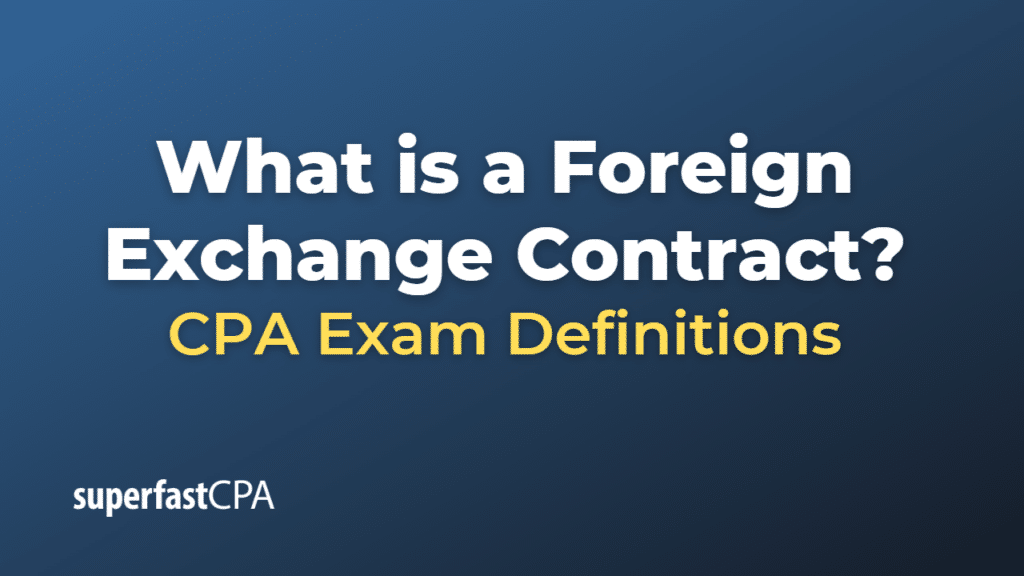Foreign Exchange Contract
A foreign exchange contract, often referred to as a forex contract or currency forward contract, is a financial agreement between two parties to buy or sell a specific amount of a foreign currency at a set exchange rate, at a specified date in the future.
This type of contract is commonly used to hedge against potential losses from fluctuating exchange rates, essentially “locking in” a future exchange rate today. Businesses that deal with international transactions use these contracts to ensure stability in their financial planning and to avoid risks associated with currency fluctuations.
For example, if a U.S. company knows it will have to pay a British supplier £1 million in three months, it could enter into a foreign exchange contract today to buy £1 million at the current exchange rate. This eliminates the risk that the pound will strengthen against the dollar in the next three months, which would otherwise make the payment more expensive in dollar terms.
A foreign exchange contract can be customized to fit the needs of the two parties involved, specifying the amount of currency to be exchanged, the rate of exchange, and the date when the exchange will take place. They are over-the-counter (OTC) contracts, meaning they are not traded on a centralized exchange but are privately negotiated between the two parties.
It’s important to note that, while these contracts can protect against currency risk, they also mean that the parties will not benefit if exchange rates move in their favor after the contract is made. For example, if the U.S. dollar were to strengthen against the British pound after the contract is made, the U.S. company would still have to buy pounds at the pre-set, potentially less favorable, exchange rate.
Example of a Foreign Exchange Contract
Suppose an American company, “US Tech Inc.”, is expecting to receive a payment of €1,000,000 from a European client for a large project in 90 days. US Tech Inc. is worried about the volatility in the forex market and the risk of the euro depreciating against the dollar in that period, which could lead to a reduction in the dollar amount it eventually receives.
To hedge this risk, US Tech Inc. enters into a foreign exchange contract (also known as a forward contract) with a bank. The current exchange rate is $1.10/€1. They agree that in 90 days, the bank will buy €1,000,000 from US Tech Inc. at a rate of $1.10/€1.
Now, two scenarios can happen:
- The euro depreciates: Let’s assume that in 90 days, the exchange rate drops to $1.00/€1. However, thanks to the forward contract, US Tech Inc. still gets to exchange its euros at the agreed rate of $1.10/€1, thus receiving $1,100,000, which is $100,000 more than it would have received without the contract.
- The euro appreciates: If the euro’s value increases and the exchange rate goes up to $1.20/€1, US Tech Inc. still has to exchange its euros at the rate of $1.10/€1, as per the contract. Thus, it would receive $1,100,000, which is $100,000 less than it would have received without the contract.
Therefore, while a foreign exchange contract can protect a company from potential losses due to currency depreciation, it also means the company might not be able to benefit from favorable shifts in the exchange rate.













